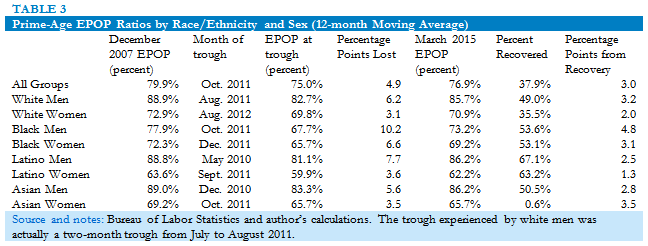June 12, 2015
Nicholas Buffie
Real Clear Policy, June 12, 2015
View article at original source.
Next week, the Federal Reserve’s Federal Open Market Committee will convene to discuss the future of monetary policy. The main topic of discussion will likely be whether or not the Fed should begin raising interest rates soon.
I recently authored a report that’s directly relevant to this point. The paper quantifies the drop in prime-age employment associated with the 2007-2009 recession and tracks the degree of recovery over the past six years.
If employment is less than fully recovered, then demand is likely depressed in the economy as a whole. (When demand is low, firms don’t have an incentive to produce more goods and services, so they don’t increase their payrolls.) When the Fed raises interest rates, it removes demand from the economy; while this doesn’t pose too many problems for a high-demand economy, in a low-demand economy it can cause significant job loss. My paper indicates that the economy is still suffering from depressed demand, and thus could shed jobs if the Fed raises interest rates.
The prime-age employment rate — the percentage of Americans aged 25 to 54 who are employed — fell from 79.7 percent in December of 2007 to 74.9 percent in September and October of 2011. By March of this year, the rate had risen to 77.2 percent, where it still stood last month. This means that the labor market has recovered less than half of the prime-age employment that was lost.
Moreover, while the downturn has been difficult for everyone, it has been especially bad for black men. The prime-age employment rate for black men fell over 10 percentage points between December 2007 and October 2011, and is still nearly 5 percentage points below its 2007 level:

This suggests that black men have the most to gain from a true recovery. They will also, therefore, have the most to lose if the recovery is halted by the Fed’s decision to unnecessarily raise interest rates.






